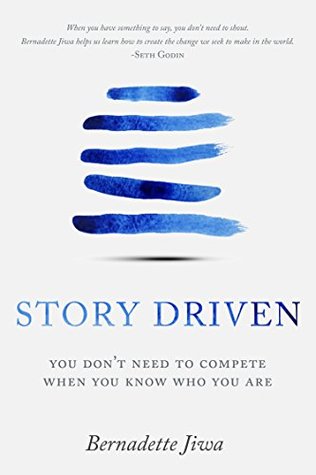More on this book
Community
Kindle Notes & Highlights
Read between
April 2 - December 31, 2022
Ironically, the people who create fulfilling lives and careers—the ones we respect, admire and try to emulate—choose an alternative path to success. They have a powerful sense of identity.
Successful organisations and the people who create, build and lead them don’t feel the need to compete, because they know who they are and they’re not afraid to show us.
stop competing and start succeeding by being who you are, so you can do work you’re proud of and create the future you want to
see.
In a digital world, as the village becomes global, it’s never been more important to have a powerful sense of identity and to avoid the temptation of just competing to win.
It’s hard to figure out how to be great at what you do, in the way only you can do it, by focussing on what everyone else is doing.
She may not always get to choose the work, but how she does it is a choice.
committed to making a contribution to the wider world. Tesla’s people have always been united around a single mission: ‘to accelerate the world’s transition to sustainable transport’. This mission was updated in 2016, changing ‘transport’ to ‘energy’.
the story-driven company is responsive to customers and prioritises having a clear sense of purpose and identity. It makes little reference to the competition and is intent on creating an impact.
Story-driven companies have a positive impact on their customers and society. They thrive by making the connection between their purpose and prosperity. Their goal is to make a difference.
Differentiation happens when you authentically amplify the best of you—discovering how to be more of who you are, rather than finding ways to be a version of the competition.
It’s hard to do work you’re proud of if you’re focused on crushing the competition or making the next million.
The story you live and the identity you inhabit are always a choice.
You can choose to create a career or a company that enables you to do work you’re proud of—and that prospers in the service of others.
We have created a culture where we’re not winning unless someone else is less-than or losing.
Even when we think we know what
we’re working towards, our actions from day to day don’t always support our answers.
it’s possible for us as individuals to redefine greatness by changing how we measure success—by replacing our winner-takes-more worldview with one that requires us to ask if we’re doing work we’re proud of. We each get to decide what it means to be great. Moment to moment and day by day, we can deliberately choose to do only the things we’ll be proud to have done and to create the future we want to see.
If we want to prioritise people over profits and impact over dividends, we need to choose carefully what we will measure each day.
When we constantly pursue and prioritise ‘more’ above ‘meaning’, we take wrong turns, box ourselves in, self-sabotage or make unhelpful plans. We become less sure about the best way to achieve our goals, and we make the wrong decisions on the fly.


